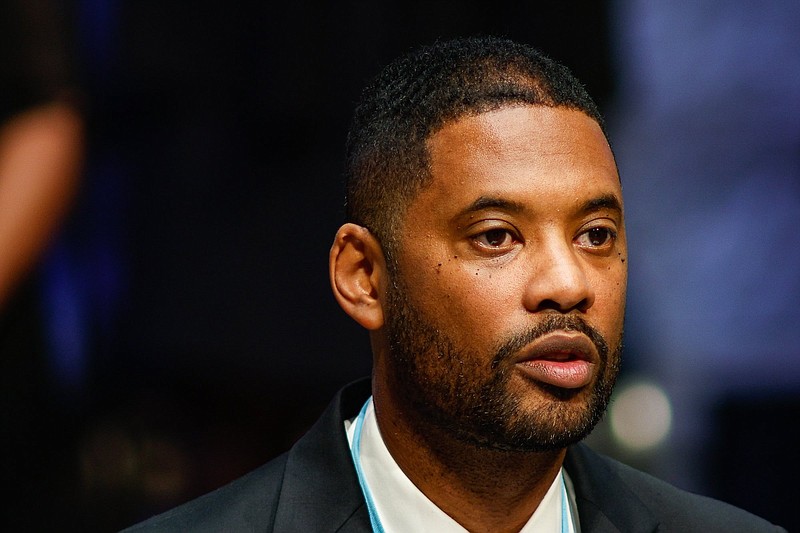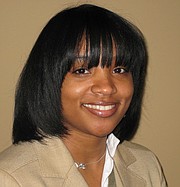The median family income for Black Chattanoogans is less than half that of their white counterparts in the city, and Black residents in the municipality also rank well behind white Chattanoogans in most measurements of health, education and wealth, according to a new report released Wednesday by the Urban League of Greater Chattanooga.
For all of Chattanooga's economic gains in recent years, household income for Black Chattanoogans is still below what the Urban League says is a livable family income and lags behind what Blacks make in the rest of Tennessee by 16.3%, or $6,333 a year.
"The results of this recent State of Black Chattanooga analysis reveal that a thriving economy in the Chattanooga area has not translated to success for a considerable number of Black residents," the Rev. Ernest Reid, a pastor at the Second Missionary Baptist Church and treasurer for the Urban League of Greater Chattanooga, told community leaders Wednesday in releasing the new study. "As a community, we must better understand the history of Blacks in America to truly work toward addressing the structural racial inequality that limits the outcomes and success of Black Chattanoogans.
In the three major indicators of well-being analyzed by the Urban League, Black Chattanoogans average only about 60% of what their white counterparts enjoy. Blacks trail white residents in a host of measurements for health, education, wealth and income.
Reid said the comparative level of well-being identified in the new report for Black Chattanoogans today is similar to the value attached to Black American slaves in the late 1700s, when Article 1, Section 2 of the U.S. Constitution said any slave would be counted as three-fifths of a free individual for purposes of congressional representation.
"We're still experiencing the trauma 400 years after slaves first came to this country," said Candy Johnson, president of the Urban League of Greater Chattanooga, at Wednesday's event.
Johnson, who pushed to prepare the State of Black Chattanooga during her first year as head of the local Urban League chapter, said the report verifies "stark differences" in the economic, health and education achievements between the races and underscores the need for corrective steps to bring more equity and inclusion in Chattanooga's economy and civic life.
The study found the typical Black family in the city earned $37,069 in 2019, or only 47% as much as the median white family income of $77,321. The Black poverty rate in Chattanooga of 25.3% in 2019 was nearly triple the poverty rate for white Chattanoogans, and Black residents were also three times more likely to die of diabetes and hypertension than white residents.
The study found Black Chattanoogans are more than twice as likely to be turned down for a mortgage, and Black students are four times more likely to be expelled from school compared with their white counterparts.
Differences in Black and white
Median family income: White - $77,321; Black - $37,06Population in poverty: White - 8.6%; Black - 25.3%High school graduates with readiness level: White - 53%; Black - 21%Bachelor’s degree attainment: White - 20%; Black - 11%Hypertension and hypertensive renal disease: White - 7.7 per 100,0000; Black - 22.5 per 100,000Diabetes mortality: White - 18.3 per 100,000; Black - 55.8 per 100,000Cancer mortality rate: White - 168 per 100,000; Black - 198 per 100,000Chattanooga Black income lags rest of the stateThe median Black Household Income in 2019 in metro Chattanooga was 16.3% less than the statewide average and 22.6% below the U.S. median. Among the major metro areas in the state, Black income in Chattanooga was higher than only metro Knoxville.United States - $41,935Tennessee - $38,791Nashville - $47,3895Memphis - $38,591Chattanooga - $32,458Knoxville - $30,597Source: State of Black Chattanooga, Urban League of Greater Chattanooga based upon U.S. Census and other data for the city of Chattanooga or Hamilton County, compiled by IHS Markit.
Although Chattanooga has promoted its entrepreneurial ecosystem in Gig City with a downtown Innovation District, the overwhelming majority of businesses continue to be owned by white Chattanoogans. Among more than 5,000 local employer businesses in metro Chattanooga, 83.5% are owned by white residents and only 2.3% are owned by Black residents.
"This history of race in America has created advantages for the white population that continue to be present in many of the measurements we are seeing in Chattanooga today," Dakasha Winton, a senior vice president at BlueCross BlueShield of Tennessee, said during Wednesday's presentation at the Urban League. "Considering the overall strength of the area's economy in recent years, the lagging income of Black Chattanoogans is extraordinary."
In an introduction to the State of Black Chattanooga report that they helped co-chair, Reid and Winton said Chattanooga is at risk of "a potential Black exodus" if the racial disparities are not addressed and more diversity is achieved in the economic and civic life of Chattanooga. Other cities with higher average incomes for Black families may encourage more Blacks to leave Chattanooga and relocate elsewhere.
During the decade ended in 2020, new census figures indicate the number of people identifying themselves as only Black or African American declined in the city of Chattanooga for the first time since the decennial census has tracked such information. While some of the drop may reflect the way people identified themselves in the 2020 census count, some of the decline may also be due to Blacks moving out of Chattanooga.
Chattanooga Mayor Tim Kelly, who attended Wednesday's presentation on the State of Black Chattanooga, said the report verifies what he heard and saw during his mayoral campaign last year. Kelly said his administration is working to diversify employment, contracting and civic leadership at City Hall as well as working on programs to help address inequities in Chattanooga.
"We recognize we need to do more," he said.
Contact Dave Flessner at dflessner@timesfreepress.com or at 423-757-6340.

